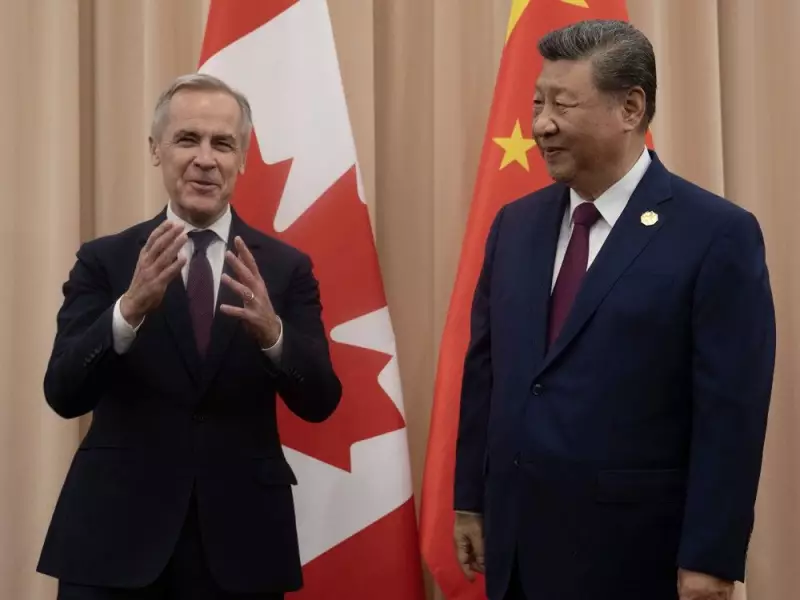
In a decisive move that signals Canada's alignment with key international partners, the federal government has announced sweeping tariffs on Chinese-made electric vehicles and batteries. This bold trade action marks a significant escalation in Canada's economic stance toward China and represents a strategic effort to protect the domestic automotive sector.
A Coordinated North American Response
The new tariff structure, which imposes a 100% duty on Chinese electric vehicles, mirrors similar measures recently implemented by the United States. This coordinated approach strengthens North America's collective position in the growing global trade tensions over green technology and automotive manufacturing.
Industry analysts note that while Chinese EV manufacturers currently have minimal presence in the Canadian market, these preemptive tariffs serve as a protective barrier against potential future market flooding. The move demonstrates Ottawa's commitment to safeguarding Canada's evolving electric vehicle ecosystem.
Broader Economic Implications
The tariff package extends beyond passenger vehicles to include various Chinese imports across multiple sectors. This comprehensive approach reflects growing concerns about unfair trade practices and market distortions originating from China's state-supported industries.
Former Bank of Canada governor Mark Carney has been vocal about the economic challenges posed by China's trade policies. His insights have contributed to the ongoing dialogue about how Western economies should respond to China's growing industrial dominance in critical technology sectors.
Protecting Canadian Green Technology
These tariffs arrive at a crucial moment for Canada's burgeoning electric vehicle and battery manufacturing industry. With massive investments flowing into Ontario's battery plants and Quebec's EV supply chain, the government aims to create a level playing field for domestic producers.
The strategic timing of these measures suggests careful consideration of both economic sovereignty and environmental goals. By protecting homegrown green technology companies, Canada positions itself to become a North American hub for sustainable transportation manufacturing.
What This Means for Canadian Consumers
For now, Canadian car buyers are unlikely to see immediate price changes at dealerships, as Chinese EV brands have yet to establish significant market share. However, the long-term implications could include:
- Protected domestic manufacturing jobs in Ontario and Quebec
- Accelerated development of Canadian-made EV technology
- Potential for future trade negotiations with China
- Strengthened supply chains with U.S. and European partners
The tariff decision represents a calculated risk in Canada-China relations, balancing economic protectionism with the realities of global trade interdependence. As the situation evolves, market watchers will be monitoring China's response and the potential for retaliatory measures.





